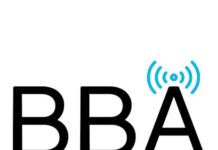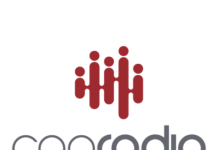
(By Eric Rhoads) Here’s a news flash, in case you missed it: Madison Avenue advertisers are mostly not enamored of radio. Yes, there are some loyal ones who continue to spend, but, right or wrong, most believe the world has moved on and that things like radio are antiquated.
Our arguments can still be effective with some when we demonstrate what is actually happening, and show those who assume we’re in decline — because of audience erosion in other “legacy media” like TV, cable, newspapers — that radio’s audience has not been lost. But many minds won’t be changed, even by all the evidence in the world.
The other issue is that advertising is, and always has been, controlled mostly by young, 30-something media planners. If they believe radio is no longer relevant, there’s not much that can overcome that. Probably the only thing, frankly, that will help is if radio is pushed from the top down by advertisers — which is why it’s important when CEOs of radio companies meet with CEOs of consumer product companies.
Last November at Forecast, Radio Ink’s annual Harvard Club event, Dave Penski of Publicis, one of the world’s giant advertising companies, told us that 80 to 90 percent of all of his client budgets are being shifted to Google and Facebook advertising. That’s because clients want it, because it works, and because clients can see the results instantly and track exact consumer behavior.
Advertisers are going to digital, and no matter how much we talk about the benefits of radio advertising, it will mostly fall on deaf ears. Frankly, I too am spending a fortune advertising on these mediums for one of my businesses — and business is booming, so I don’t blame them.
Recently radio was in the press when BIA/Kelsey booted it out of the top five in media spending, replaced by mobile. According to a mid-year forecast, the top five media (revenues and share of market) contributing to the local media pie in 2017 will be: direct mail, $37.1 billion (25 percent share); local TV, $20.9 billion (14 percent); online/interactive, $18.6 billion (11 percent); newspapers, $16 billion (11 percent); and mobile $16 billion (11 percent). Local radio is sixth, with $15.6 billion. Overall, search spending in the U.S. is expected to increase 24 percent over the next two years, to $45.63 billion in 2019. That will make search number one.
This isn’t good news for radio, but it’s been predicted for a decade, and it has finally come true.
The harsh reality is that with national brands being seduced by the next big things, and having success with those things, we probably shouldn’t spend a lot of time wishing they would return to radio. Some may, at some point. But one broadcaster told me, “They will be back once they realise the Internet doesn’t work.”
Sorry, but this is naive. The Internet, search, mobile, AdWords, ad networks, social media, retargeting, etc., do work, and they work well. And they are not only seducing national advertisers, they are seducing small, local businesses. After all, what’s the first thing you do when you want to decide where to go to dinner these days? You search it on the Internet, and that’s when online advertising shines.
Radio works. Radio still has a great audience. Both of those remain true. The problem is that advertisers are enamored of something else. We will get some of their dollars, and the reps and networks will fight for every one of those dollars, and they should. But it seems to me that radio needs to build on its strengths and tell its story of localism.
Rather than playing a “We’re better than them” game, which has never worked very well, why not play the “We are great in concert with them” game? The reality is that radio can drive interest in products. Radio can drive people to local businesses. Radio can be a great branding tool.
A wise mentor once told me that you don’t slay a dragon with a frontal attack, because you can’t win. You have to work around it, or attack from behind. Personally, I think anyone going to an advertiser and telling them all the reasons search and mobile are a bad idea will get laughed out of the room. But telling them how radio is best suited to enhance those things, and how radio is suited for other parts of their overall strategy, is a win-win.
I don’t ever want to be negative, and I think we should continue to fight the battle for national business. There will always be business coming across the transom. Yet I think we should design our budgets not to count on it. Look at it as gravy, because if national shrinks and even goes away as some predict, we’ll still survive if we have a strong local strategy.
I’m sure this isn’t what anyone wants to hear. Radio has relied on national advertising since the beginning of time. But changing the minds of Millennials in charge of ad dollars remains a challenge, especially when what they’re already doing is working.
The advertising business has changed forever. Things will never return to the way they once were. It’s important to understand that, accept it, and find new ways to create revenue. With new and creative approaches and solutions, I’m convinced there is ample opportunity for radio.
Eric Rhoads is the Chairman of Radio Ink Magazine and can be reached at [email protected]






Well said, Eric.
I hope everyone appreciates your courage and foresight in telling it like it is.
Please God, make all radio CEOs read this!
I could not agree more with this article. I especially agree with the part that you can not sell against other media but how can my media in this case radio compliment your overall advertising campaign. I never from the time I began in media (radio) subscribed to the idea that an advertiser should take their money from one media to another. It has always been a marketing mix. Radio today needs to make sure they understand how they fit into that mix.
Points well made Eric. It’s not an all or nothing game and broadcasters need to realize that the word “audio” is more relateable to what we do these days. It isn’t just the client message, it’s how and where you get it and how it combines with digital and other communications that deliver the desired result.